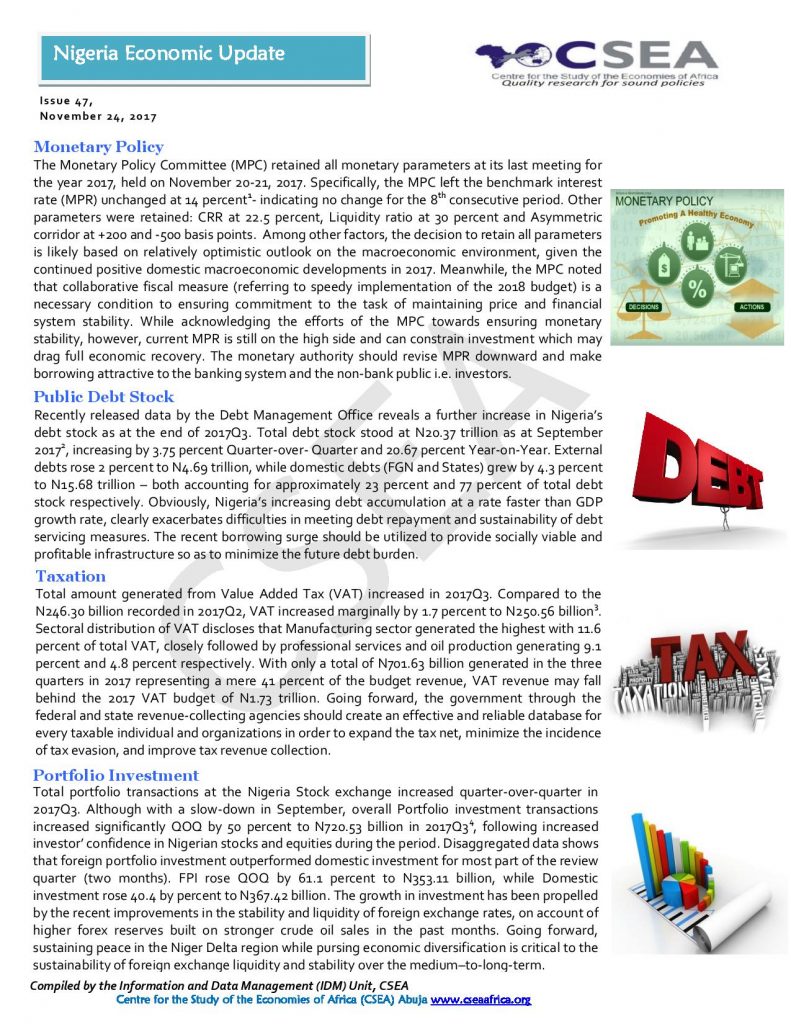Macroeconomic Report & Economic Updates

December 12, 2017
Nigeria Economic Update (Issue 47)
Recently released data by the Debt Management Office reveals a further increase in Nigerias debt stock as at the end of 2017Q3. Total debt stock stood at N20.37 trillion as at September 20172, increasing by 3.75 percent Quarter-over- Quarter and 20.67 percent Year-on-Year. External debts rose 2 percent to N4.69 trillion, while domestic debts (FGN and States) grew by 4.3 percent to N15.68 trillion both accounting for approximately 23 percent and 77 percent of total debt stock respectively. Obviously, Nigerias increasing debt accumulation at a rate faster than GDP growth rate, clearly exacerbates difficulties in meeting debt repayment and sustainability of debt servicing measures. The recent borrowing surge should be utilized to provide socially viable and profitable infrastructure so as to minimize the future debt burden.
